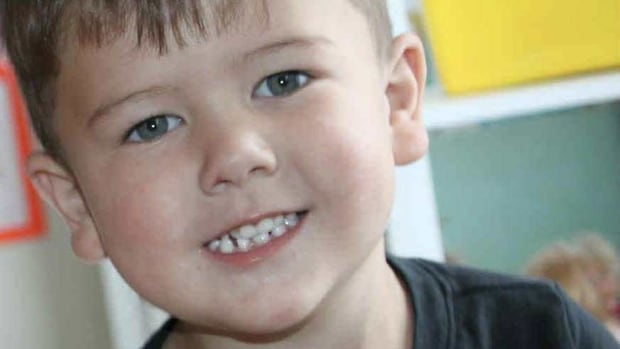A Wolastoqey family residing in New Brunswick is currently facing uncertainty regarding medical assistance for their three-year-old child due to a persistent backlog of Jordan’s Principle funding requests.
Stephanie Francis expressed concern, stating that children should not have to suffer due to bureaucratic delays in determining financial responsibility for healthcare. She and Ashton Francis, based in Tobique First Nation (Neqotkuk), have a son named Beckett, who has glycogen storage disorder type 1A. Beckett’s condition hampers his liver’s ability to break down stored glycogen, making him susceptible to dangerous drops in blood sugar levels.
To prevent hypoglycemia, which could lead to severe consequences such as seizures or coma, Beckett requires feeding through a gastrostomy tube every two to three hours. Despite medical professionals at the IWK Health Centre in Halifax supporting the family’s request for a night nurse, their applications to Indigenous Services Canada’s Jordan’s Principle program have faced repeated rejections and delays.
Jordan’s Principle aims to ensure prompt access to essential health and social services for First Nations youth, with the resolution of payment jurisdiction matters to be addressed later. Lucy You, Liver Canada’s vice-president of strategy, health, and technology, emphasized the medical necessity of overnight nursing care for children with a gastrostomy tube and GSD 1A, highlighting the challenges families face in managing complex medical needs independently.
While the Jordan’s Principle program initially approved funding for a night nurse five nights a week for Beckett, the family encountered recurring obstacles, having to reapply periodically and endure further delays. Stephanie Francis voiced frustration over the uncertainty of funding approval, stressing the critical and life-saving nature of the service for their son.
Carllia Panton, the night nurse who has been supporting the Francis family, expressed her commitment to Beckett’s care, even in the face of payment uncertainties caused by funding delays. Despite her dedication, the family’s request for weekend overnight nursing has been denied twice, with their appeal now caught in the program’s mounting backlog.
In response to the backlog issue, the Canadian Human Rights Tribunal instructed the federal government to urgently address the backlog of 140,000 applications last December. Indigenous Services Canada acknowledged the delays and pledged to expedite processing while handling new requests. As of June 4, 2025, the program still faced nearly 140,000 outstanding applications, with Minister Mandy Gull-Masty focusing on resolving the backlog and enhancing service delivery in collaboration with First Nation leadership.
In a recent meeting supported by Wolastoqey chiefs, the Francis family engaged with New Brunswick government representatives, Indigenous Services Minister Mandy Gull-Masty, and Assembly of First Nations officials to share their experiences and advocate for improved response times. Chief Allan Polchies of Sitansisk (St. Mary’s First Nation) highlighted the financial strain on communities covering urgent costs while waiting for Jordan’s Principle decisions, underlining the federal government’s responsibility to prioritize First Nations children’s well-being.
Stephanie Francis expressed hope that families facing similar challenges in accessing Jordan’s Principle funding for essential medical needs would not encounter the same hurdles in the future. She emphasized the fundamental principle of ensuring children receive necessary services promptly, with financial considerations addressed subsequently to uphold the program’s original intent.



